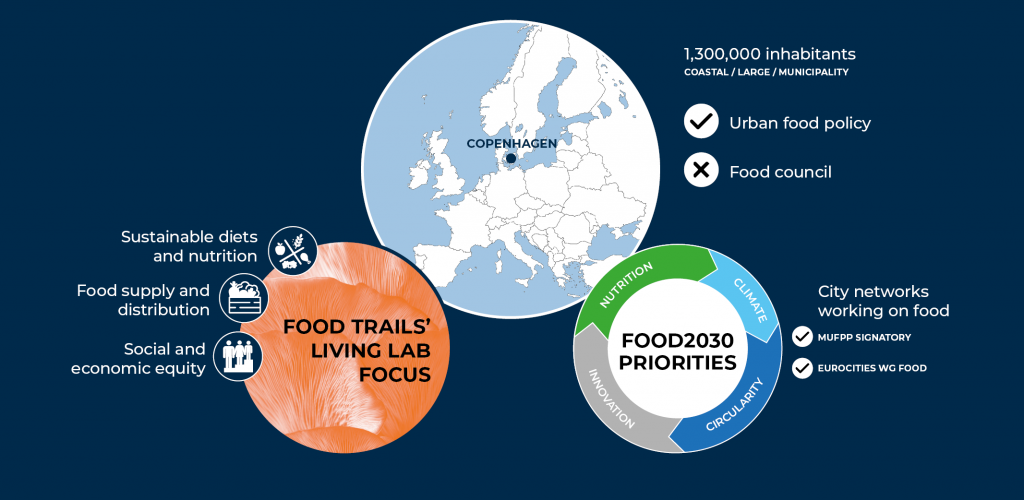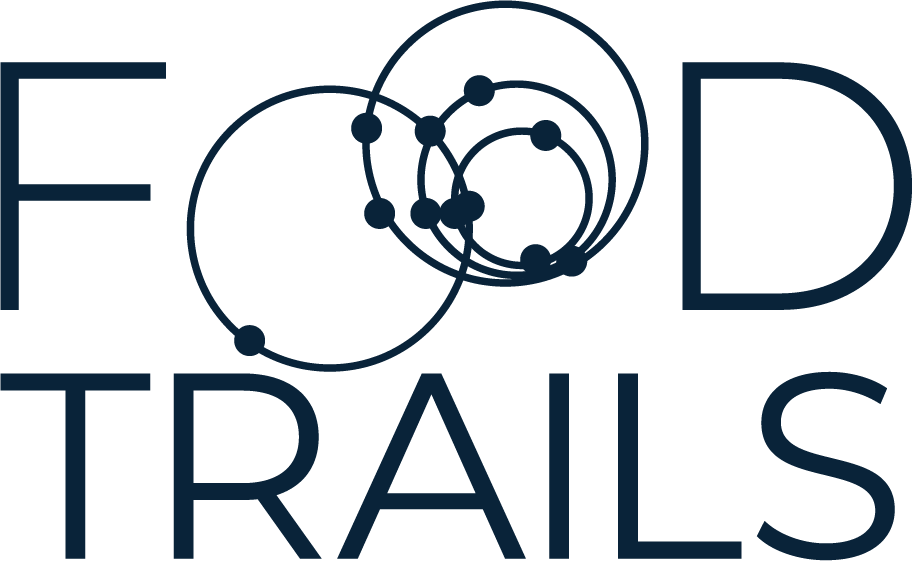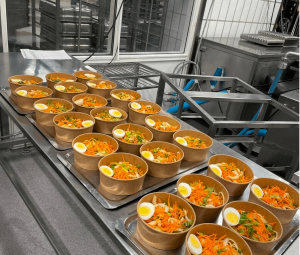
Famous for its bikes, bridges and pastries, the Danish capital is also a European leader in food policy.
Since 2001, the city has developed a food strategy that combines health, taste and climate responsibility. Copenhagen has embarked on a long-term project to improve public meals by ensuring all products are organic and using fewer meat-based products. The city also changed its procurement guidelines and initiated a dialogue with key food supply chain actors.
The city’s approach is based on wide-ranging targets:
- promoting food literacy;
- strengthening social communities;
- ensuring that Copenhagen becomes a green, healthy and vital food city.
Food procurement and consumption generate 25-30% of GHG emissions, and a large part of this is related to meat consumption. To reduce the carbon footprint of the City of Copenhagen, the 2019 Food Policy strategy and the food policy actions developed through Food Trails target more climate-friendly food consumption. In particular, the food policy actions of the living lab focus on local and organic food with low carbon footprints in public kitchens as well as for all residents of the city.
Copenhagen’s Food Trails pilot aims to develop a climate-friendly new standard for the public plate, a food strategy with a strong emphasis on climate, adjusting to various nutritional needs, along with actions and training designed to anchor behavioural change in terms of reduced emissions in the food culture of the public sphere. The city’s Living Lab aims to provide locals with healthy, tasty and sustainable food through a close link with the regional food system and reduce the food system’s environmental impact.
Concretely, Copenhagen’s living lab aims to:
– engaging local stakeholders in developing guidelines for schools and kindergarten kitchen staff to provide meals containing less meat while still being nutritious;
– organising training and workshops, public events and food activities for locals on healthy and sustainable diets;
– strengthening food supply chains by matchmaking local producers and rural consumers and buyers and developing local procurement models with plant-based food goals.



